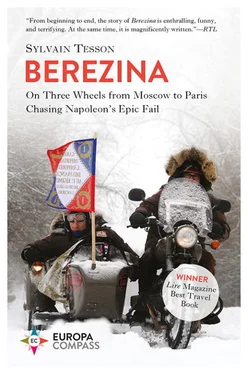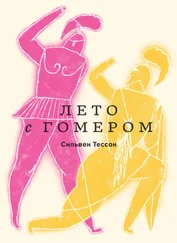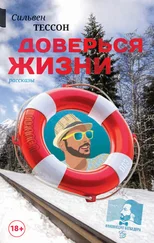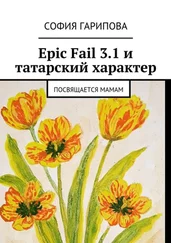We had to wait for Nina, the museum historian, to arrive. A dog bit Vassily on the calf in the little garden where two-and-a-half inch Pak 40 cannons taken from the Germans in 1940 are on display. The blood drew a flower on the snow. When the Grande Armée passed through Berezina, the river was red with blood. Nina wore a blue acrylic suit from the Andropov era and large Coke-bottle glasses like Hillary Clinton when she was a student at Yale. Nina was touched that we should have traveled from Moscow on our machines. She devoted two hours to explanations from which it transpired that Napoleon arrived in Barysaw on November 25th, when all the elements had gathered to capture him. He was finally going to fall into the trap. Minsk was in Russian hands, and the Barysaw bridge had been destroyed. The warm spell prevented him from going over the ice, Kutuzov was hot on the Emperor’s heels, and Admiral Tchigatchev’s army held the west bank, while Wittgenstein had conquered Vitsberg and was advancing on the left bank, from the north. The Grande Armée was in a vise.
Kutuzov was so certain he would annihilate the French, Nina said, that he harangued his soldiers thus: “Napoleon’s end is irrevocably written, and it’s here, in the icy waters of the Berezina, that this meteor will be defused.” The trap, set on the day the French had crossed the Neman, was about to snap shut.
“Finally!” Vassily said.
“Poor you,” Vitaly said, looking at us.
“Shut up, man, listen to what happens next.”
“Napoleon used one more trick,” Nina said. “Two days earlier, on the 23rd, by chance, General Corbineau had found a ford on the Berezina, nine miles north of Barysaw, near the hamlet of Studianka. The passage was barely four-foot deep! It was a godsend for the Grande Armée . When he discovered this, Napoleon realized he could cheat the Russians, escape from them once more, and continue his ‘meteoric’ flight.”
Nina led us to the main room in the museum. Frescoes, prints, and reproductions of paintings traced the chronology of those feverish days.
On November 25th, Napoleon commanded General Éblé to build wooden bridges in Studianka. The Emperor stayed at the construction site all day, encouraging the sappers. And, on the afternoon of the 26th, there were two bridges going over the three hundred and thirty-foot waterway. The four hundred bridge builders had taken the little Russian village isbas apart in order to build their creation. They had worked with no hope of survival. The time spent in the water was fatal to them, and they were dying of hypothermia. In the meantime, Napoleon had had time to place his snares. As early as the evening of the 25th, he had organized two fake construction sites: one on the ruins of the Barysaw bridge, the other one seven miles downstream, near the village of Okhuloda. Cheated, Tchigatchev sent the bulk of his army to wait for the French—who had no intention of doing so—to cross the Berezina. On the evening of the 26th, Admiral Tchigatchev realized he had been duped. But his troops, exhausted by the forced march south, did not have the strength to immediately go back up eighteen miles to Studianka. And Napoleon, who did not like sailors, joked, “Gentlemen, I have duped the Admiral!”
“Let’s go look at the place,” Goisque said.
“Which bank is it on?” Gras asked.
“The west one,” Goisque replied. “The salvation one.”
We left Nina at noon. There were ten kisses, since each of us kissed her on both cheeks while our engines warmed up. We went past the Barysaw bridge before going up the river upstream through a small country lane, as far as the Grande Armée crossing. Goisque, possessed by the spirit of the place, kept repeating, “We’re slap-bang in the middle of the myth, guys, we’re right in the myth. We’ve never been quite so deep in the myth before.”
From the huge plateau hatched with forests, the view stretched onto the other bank, far toward the east. A sandy valley, streaked with strati, cut through the landscape from north to south. Layers of marl and clay leafed through the alluvial embankment with pale veins. At the far end was the Berezina. It was a pleasant, hesitant waterway, with meanders that had a mercury glow. They were fixed by the frost and wound between islands covered in reeds. The sun tore through clouds puffy with snow. The rays splashed willows growing on the sandy banks. The silver birches looked lilac in the light. The village houses seemed to huddle up to keep warm on the edge of the thalweg. Black flapping crows flew across the tableau. Their lament fell with the snow. Otherwise, the world was just a beautiful silence. We looked at everything avidly. It was the setting for the apocalypse and you would have thought we were in the Loiret region.
The stone stela bore an inscription: “Here, the soldiers of the Grande Armée crossed the Berezina.” A sentence that made the nightmare sound like nothing at all.
The army crossed the river during the afternoon of the 26th and all day on the 27th. It had started snowing again, which concealed the French maneuvers. For once, winter was doing the Grande Armée a good turn, by throwing a screen over the rout, and blinding the Russian troops. The timber footbridges, narrow and made heavy by the ice, snapped under the weight of the humans and horses. Éblé’s bridge builders kept jumping back into the water to reinforce the supports. Those who did not die from immersion syncope risked being crushed against the bridge stillage by the collapsing debris. Their sacrifice was the price of the rescue.
Napoleon crossed onto the right bank on the morning of the 27th. That same evening, thirty thousand slowpokes—exhausted soldiers, civilians, women, and children—arrived on the Studianka bank. Night fell, it stopped snowing, and the cold gripped the plain again. The shore groves then lit up with hundreds of fires next to which, made stupid by weakness, unaware of the urgency, the latecomers became numb instead of getting to safety by crossing onto the west bank as soon as possible.
Meanwhile, the Russians were approaching Studianka. Wittgenstein arrived with his forty thousand men at dawn on November 28th. The bridge at Barysaw had been rebuilt by the Russians, and Kutuzov had gone onto the right bank, on the same shore where Tchitchagov’s army, thirty thousand soldiers strong, reached the Grande Armée bridges at 7 A.M. The powers were in place. The Battle of Berezina broke out before tens of thousands of stragglers had even crossed. Napoleon had hoped in vain that his own army corps, in charge of holding back Wittgenstein and Tchitchagov on their respective banks, would hold until the evening of the 28th, thus allowing all the French to cross over. However, the French divisions were submerged.
When the Russian cannon balls fell on the left bank crowd, the horror began. There was a rush on the crossing, and the bridges were covered with a human tide. People died crushed and stifled. They slipped, fell, tried to get back onto the footbridges, but fell into the water and drowned. The river collected the corpses of men and horses, carriage debris mixed with ice. Those who had been able to keep their balance were running on a carpet of bodies. The access and exit of the footbridges were obstructed by the heap of corpses. At the exit of the bridge, the swamp mire was shielded by a wall of dead bodies into which the passage trench led. On the left bank, Russian artillery kept sowing desolation. A first bridge collapsed and the Berezina swallowed up “the victims killed by Russian barbarity,” Caulaincourt says. Even Sergeant Bourgogne, who had seen so much and who was “used to going to sleep in the middle of a company of corpses,” even he, the wretched Vélite grenadier, who had survived everything, and who dipped his quill in composure, snapped: “I couldn’t bear to see anymore. It was beyond my strength.”
Читать дальше












